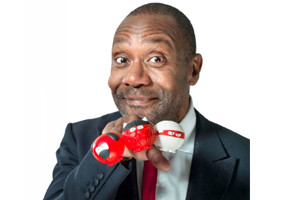The Chartered Institute of Fundraising's (IoF) Convention 2020 saw thousands of fundraisers getting together over Zoom for the first time - rather than over coffee and pastries in the Barbican's catering area.
There were a lot of big subjects to discuss, starting with the huge impact that the Covid crisis will have on fundraising, giving and charities. But the topic that took centre stage, perhaps even more than the crisis, was racism and diversity both in fundraising and in the wider charity sector.
The subject is huge, but here are some of the learnings we (metaphorically) took home.
Funders and fundraisers have power
Although in different ways, both funders and fundraisers have a lot of power when it comes to making sure minority communities are properly represented and supported – especially during a crisis which is impacting them massively. And, as they say, with great power comes great responsibility.
Jeana Malhi, committee member at Beyond Suffrage, asked fundraisers to tell the stories of the communities they serve, and funders to support long-term projects trying to produce systemic change.
She said: “For fundraising campaigners: you have a huge role in storytelling. There may not be those big numbers or statistics that we often rely on. But there are amazing stories here to be told. Work on capturing those in campaigns.
“As funders, ask yourselves: are you working with organisations and projects like Beyond Suffrage to take a systemic lens, or encouraging them to take the long-term vision? Or instead, are you creating unnecessary pressures for them to provide you with these big numbers that force them to adopt a short-term view?
“There is a huge choice and a huge power you have here. Please use it wisely.”
Funders are… working on it
While the conversation on racism and lack of diversity among trusts and foundations pre-dates the pandemic, it has recently become more urgent, with #CharitySoWhite campaigning for 20% of emergency funds to go to BAME-led groups. So, where are funders at?
The National Lottery Community Fund (NLCF) and Comic Relief shared some insights on their journey to do better.
Dawn Austwick, chief executive at NLCF, said: “We are probably no further along on this journey than most other folks. We are as much trying to find our way as anyone else.”
She said their actions include funding strategic work, like the report on racism in the sector published last month by Voice4Change England and ACEVO, creating a fund for people with lived experience, day-to-day funding of BAME organisations, making sure the application process is welcoming for all, looking at its own board and workforce, and funding medium-to-long term projects to achieve permanent change.
Austwick, who is due to leave NLCF later this year, said that on long-term funding for BAME infrastructure organisations, she wishes it had made more progress.
She said: “I think that is probably the biggest piece of unfinished business in my seven years. It's the thing we've probably made the least progress on. If I've learned anything, I've learned good intentions are not really much use. To actually achieve change, you have to drive it very hard, relentlessly, through what you do - how you hire staff, how you train them, what your systems are, what your processes are, what language you use. It's hard work, it's sustained work, and it doesn't happen overnight.”
Dilhani Wijeyesekera, head of influence at Comic Relief, said the charity started a “journey around diversity and inclusion” last year, after it was criticised for promoting a “white saviour” narrative when Stacey Dooley was involved in making a film for the charity.
Wijeyesekera said in her opinion the criticism was “very justified” and prompted a series of actions, including a series of internal listening sessions with staff, a representation policy and strategy, and discussions on the role the organisation can play in the sector.
On the last point she said: “It's still at an early point in that journey, I want to be really honest. But we recognised that by Comic Relief starting to do this work that would also support others within the sector to also do that work as well.”
Comic Relief is also looking at how to support communities that were most impacted by the crisis. It recently announced it is distributing a total of £5.2m to BAME-led organisations, both to support them during the crisis and to fund longer-term projects.
Wijeyesekera said: “We totally recognise that it's a drop in the ocean. We've got a long way to go in terms of the role that we play in in this space.”
Language matters
Lena Bheeroo, diversity and inclusion lead at Bond and member of #CharitySoWhite, spoke about the words we use to talk about racism in the sector. #CharitySoWhite prefers to use the words “power and privilege” rather than “diversity and inclusion”, and says that we need to rethink our use of the term BAME.
She said: “The problem with framing the discussion around diversity and inclusion is that it quickly becomes a shield and all too often an excuse. And what is needed instead is a conversation about power and privilege. By power and privilege, we mean the ability of organisations and individuals to set the agenda. We want to see a shift in this power.
“It will only be when individuals and organisations recognise their power and the privilege they have, that we can actually start to dismantle the structures in place and look to shift that power.”
On the term BAME, she said it is better to replace it with terms that refer to the specific community we are talking about (such as “Black”).
She said: “BAME as a shorthand that we use to refer to a whole number of ethnic minority groups. But it is a problem, especially when we speak about communities that we serve. BAME is an inactive term which doesn't fully represent those that are part of the community. The term itself was designed to create a softly worded approach to address diverse communities, and in doing so, it has not provided enough focus on communities which are represented.”
Time for action
More than one speaker pointed out that while it’s great that the conversation is happening, people want to see action, not just words, from charities.
Carol Akiwumi, CEO at Money4Youth, said: “The reality is that in July 2020, much of the current system structures and even language is still designed and supported to maintain the status quo. It's great that many sector leaders are engaging with these issues.
“But honestly, what does that translate to in real terms? What commitments have been made and what actual change has taken place? Now, let's make it personal. What exactly have you as an individual done to make the profession more equitable, diverse and inclusive? What have you done consciously or unconsciously, to maintain the status quo?”
She listed a number of things that organisations and individuals can do practically: learning, making diversity a key part of the strategy, challenging the recruitment process, setting aside a budget to make sure change happens.
Related articles












